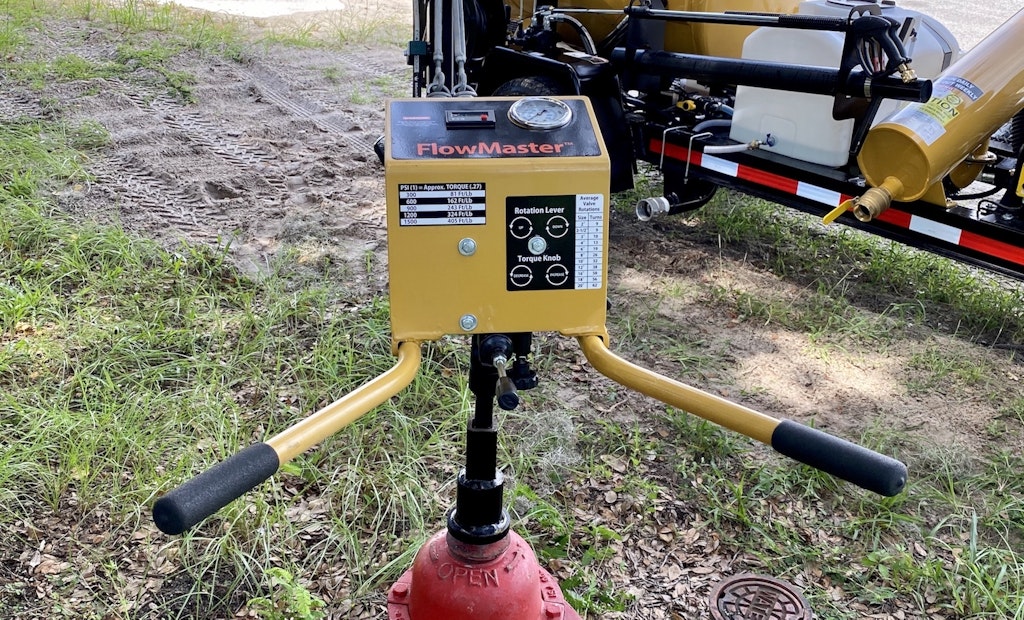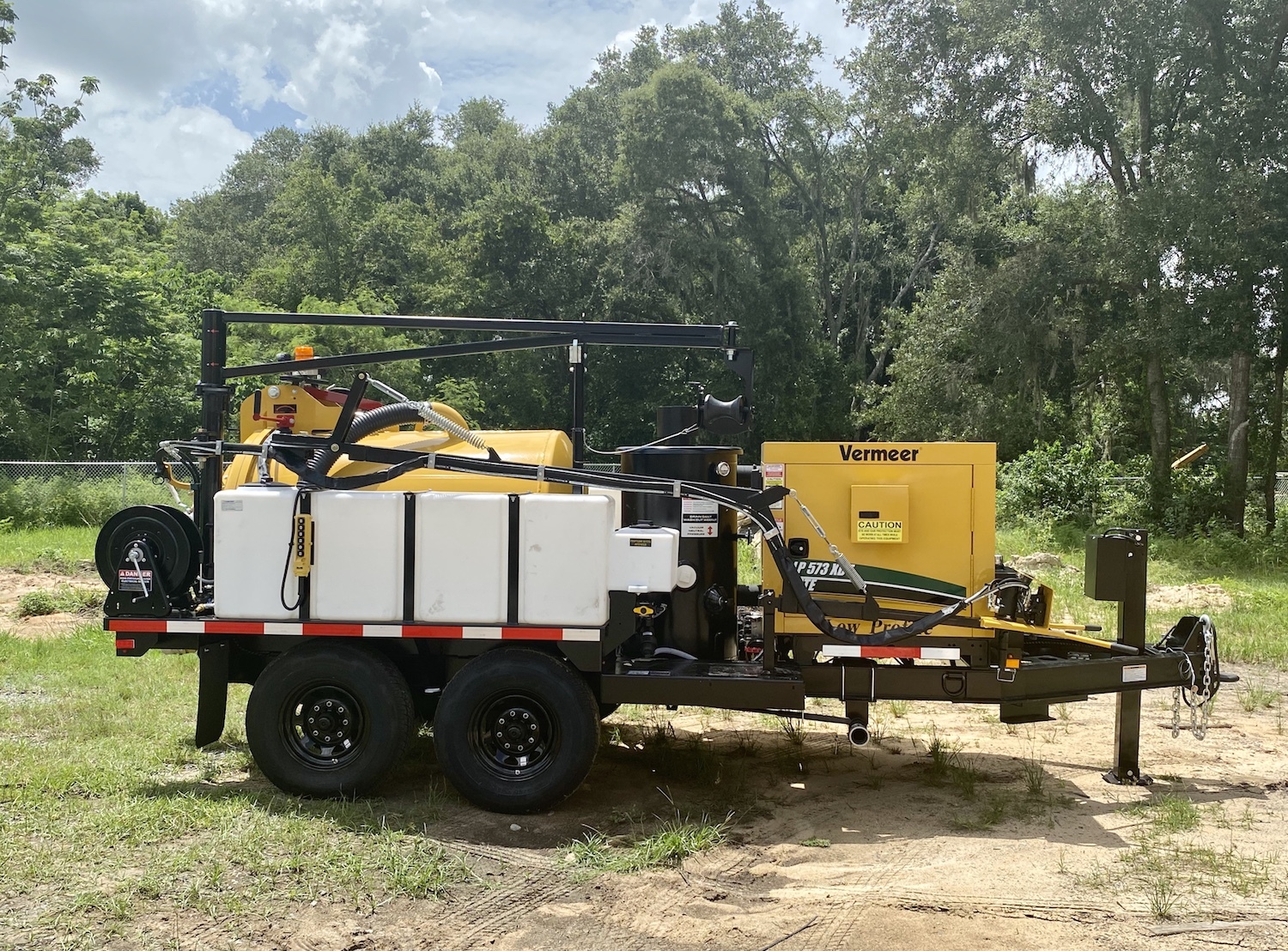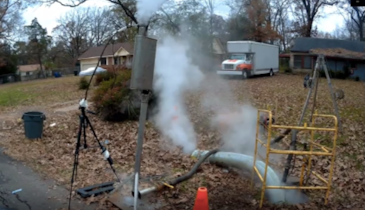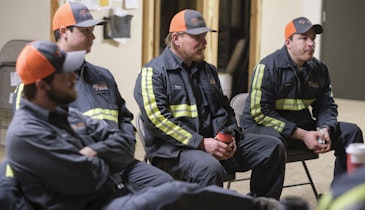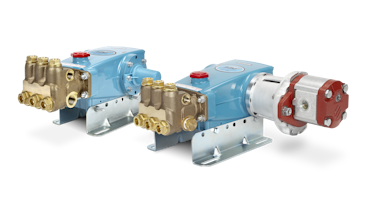When a water main breaks, the clock is ticking. The longer it takes to close the nearest water main valve, the more damage leaking, and eroding water can cause to roads and surrounding infrastructure. And that can carry enormous costs to a municipality.
But introduce a Vermeer FlowMaster valve exerciser and vacuum excavator to that scenario and you can work to cut down the time required to close necessary valves, stop water flow and restore normal traffic or operations quickly, ultimately helping reduce the cost of the repair and the disruption it requires.
A cost-effective necessity
Valve exercisers and vacuum excavators provide a high level of productivity to municipalities in performing critical infrastructure maintenance and management. They mechanize and streamline jobs like exercising water main gate valves, stopping water flow during pipe breaks or leaks, and conducting routine maintenance tasks like flushing fire hydrants to remove sediment, chemicals, rust, lime and calcium from water lines and check water cleanliness and quality for residents. Many municipalities retain the machines based on recommendations from the Department of Homeland Security and Environmental Protection Agency and the range of functions and savings they can offer in helping to prevent infrastructure damage.
“We’re sitting on a lot of dilapidated infrastructure, so the chances of pipes breaking are a lot greater. That makes these machines even more important,” according to Brian Showley, director of sales for Vermeer MV Solutions. “They go hand-in-hand with growing GPS mapping capabilities in maintaining our municipal water infrastructure.”
Repair and maintenance capabilities
When a water main breaks — be it a large pipe in a commercial area or a smaller one serving residential customers — the escaping water can sometimes cause major underground erosion. Showley recalls one instance in which a broken water main in a city’s downtown area caused around 200 feet of a city street to cave in, leading to a costly closure and repair. Though not all cases are that severe, municipal workers can help prevent that kind of costly damage by locating and closing the nearest gate valve. A FlowMaster valve exerciser and vacuum excavator can not only clear a path to the targeted valve and shut off potentially damaging water flow, but also “exercise” valves — typically part of annual routine maintenance — to make closure efficient when the clock is ticking.
“You get a buildup on these valves from the water and the chemicals in the water, and normally it makes it difficult to open and close and it usually takes two workers to get it closed. But the beauty of a hydraulic system to exercise the valve is you can efficiently and slowly go back and forth to break up deposits to make sure the valve operates effectively,” Showley says. “In most cases, small or large municipalities are out there exercising valves on a regular basis and with our vac systems, crews can do a variety of different jobs with them. Most cities have a tracking system pinpointing manholes and valves, so our machine is the muscle to go out and clean out.”
Managing water main valves
The trailer-mounted FlowMaster valve exerciser — a machine Showley said has straightforward controls with ease of operation in mind — features a 13-foot boom with 270 degrees of movement that uses hydraulic pressure to open and close fire hydrants and water main gate valves as deep as 9 feet underground. Once the operator has reached the valve box with the swing arm, its vacuum function clears a path — and can in a matter of minutes versus hours when doing the job by hand — to the valve itself, at which point the operator applies a wrench to either exercise or, in the case of a water main break, close the valve. With most larger water mains 6 inches or larger in diameter, exercising the valve involves 19-plus revolutions, while smaller lines require fewer revolutions to open and close the valve enough times to clear obstructions from sediment or other deposits.
“The maximum torque pressure is only 405 ft-lbs, which is not enough to break the valve in good operating condition. You don’t want to put the wrench on the valve and start turning it with as much torque as you need, because that can cause things to break,” Showley says. “With 405 ft-lbs of torque pressure, it’s not uncommon that it won’t turn very far. That’s why turning it back and forth is valuable. It can break up any calcium deposits or rust that could cause it to not function properly. That’s why exercising these valves is so important.”
Additional vacuum excavator functions
Beyond the important functions of maintaining municipal water systems and helping repair water main valves and fire hydrants, vacuum excavator systems help enable operators at municipalities to tackle a wide range of other jobs, like vacuum excavation, clearing storm drains and cleaning up spills. Showley compared the machines to a common household tool that has almost innumerable uses.
“There are so many other applications for the vacuum system. If you think about your ShopVac in your garage and what it does, you’re always finding something you can do with it. That’s how a vac system is for a municipality,” Showley says. “They can get into a manhole and clear the way to make underground repairs or locate underground utility lines. A city can use the vacuum to quickly and precisely straighten signs or meter boxes and install signs. They can do all of these things with a vacuum excavator that would otherwise take so much longer to do by hand.”
If you’re interested in learning more or requesting a FlowMaster demo, go to vermeermvs.com or talk to your local Vermeer dealer.
